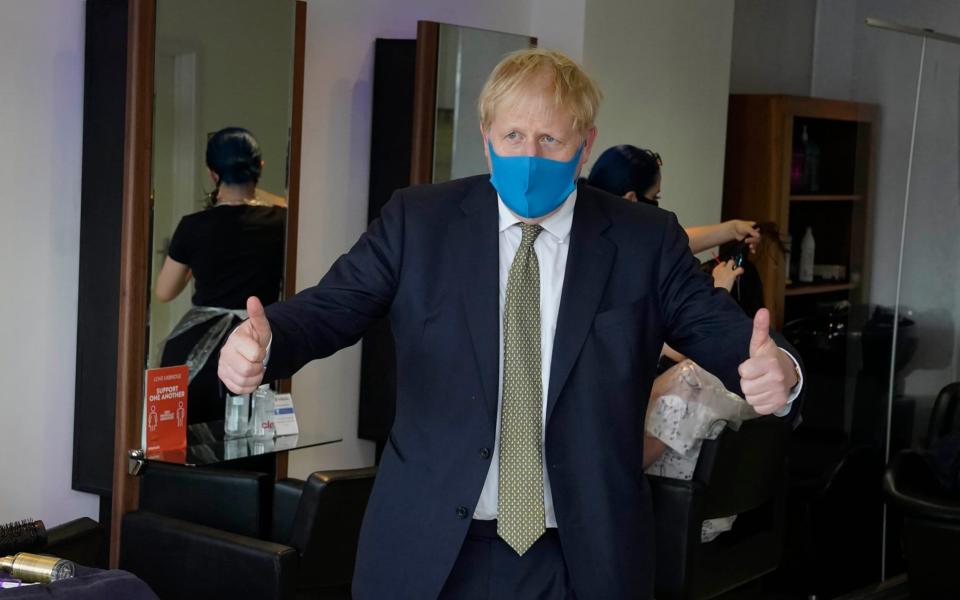Coronavirus survives in the air for more than an hour, says Sage expert


Coronavirus can survive in the air for more than an hour, a senior government scientific adviser has warned, undermining the “back to work” push by ministers.
Prof Wendy Barclay, a virologist on the Scientific Advisory Group for Emergencies (Sage), said the virus could remain viable even in tiny particles suspended in the atmosphere.
Her comments follow a change of position by the World Health Organisation (WHO), which last week acknowledged that so-called “aerosol” particles could be a route of transmission.
The new stance threatens to hamper Boris Johnson’s drive to revive the economy by encouraging people to return to their places of work and the high street.
For months the Government has asked workers to operate from home, but on Friday the Prime Minister - pictured in a shop wearing a mask for the first time - said: “It's very important that people should be going back to work if they can now.
“I want to see more people feeling confident to use the shops.”

The controversial two-metre rule is based on an understanding that the virus travels through the air on droplets from a person’s mouth or nose.
Because droplets are heavy, they fall to the surface within a relative short distance, although the evidence justifying two metres rather than one or one and a half - which most other countries have adopted - is extremely patchy.
However, scientists have warned from the start of the crisis that the virus might be able to exist on ultra-light particles called aerosols, which can float for long periods.
The phenomenon could help explain the high prevalence of infection suffered on cruise ships.
Speaking on Sunday on the BBC’s Andrew Marr Show, Prof Barclay said: "What we know is that viruses can be expelled into the air from infected people in very small droplets and sometimes even in droplets that are so small we call them aerosols and these aerosols can remain suspended in the air and can travel some distance away from the person who's breathed them out.
"We do know that SARS-CoV-2, the virus that causes Covid, can remain viable, can remain infectious, in these very small droplets so that raises the possibility and indeed the likelihood that Covid can be transmitted through these small particles that can travel through the air."
Recent polling by Ipsos MORI indicates that three in 10 British adults feel “very concerned” about their personal risk from the virus.
Prof Barclay’s comments come ahead of the week in which the Government may extend the mandatory use of face masks, which are currently compulsory only on public transport. Face coverings were made compulsory in shops in Scotland from last Friday.
She said: "The use of face masks is really about protecting other people from you in case you're infected, we do think this virus is breathed out in droplets, whether or not these droplets are large or small it's quite likely that a face mask will remove some of them from your breath."
She also emphasised the importance of ventilation that replenished the air in a room, rather than air conditioning systems which re-circulate the air.
When asked about the resumption of recreational activities such as gyms and choir practices, Prof Barclay added: "There have been a number of outbreaks associated with choirs, for example, and it's quite possible that we generate more of these small droplets when we talk loudly or sing, or perhaps when we're exercising.
Prof Linda Bauld, an expert in public health at the University of Edinburgh, said the evidence on the importance of face coverings in public places had improved throughout the pandemic.
"A number of new studies and systematic reviews have persuaded most researchers and public health officials that they should be worn, including those who were sceptical a few months ago," she said.
"Growing evidence on potential airborne transmission of the virus adds to the case for face coverings."

